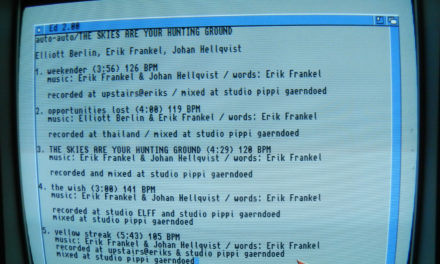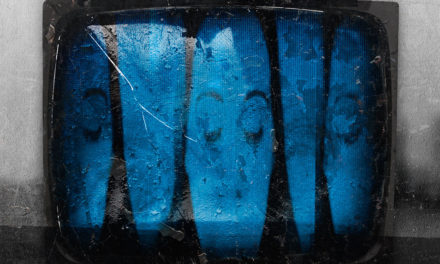
X Marks the Pedwalk
Superstition
Meshwork Music
There’s a specific arc to the X Marks the Pedwalk catalogue, trackable from its rough-hewn dark electro-origins to the sleek, mature electro of this year’s Superstition. The story of André Schmechta’s production and songwriting has been one of growth and refinement since the very beginning; you can hear him expanding the horizons of his sound design and the complexity of his arrangements over the course of the 90s catalogue, and following a lengthy hiatus between 1996 and 2010, a whittling of his compositions down to their purest and most melodic forms. Following hot on the heels of last year’s enjoyable New/End, the LP fits nicely into the smooth and tasteful niche that has been Schmechta’s wheelhouse for the past decade.
As you might expect there’s a great deal of continuity between Superstition and the two preceding X Marks records, especially in terms of the tone and tenor of the material here. Schmechta and partner Estefania keep things in the same cultivated, smooth mode of vaguely melancholic electronic composition we’ve come to expect, landing stylistically in the European electro sound that resides in the grey area between EBM, synthpop and electro-industrial. Where the record distinguishes itself is in possessing some of the stronger and most memorable vocal hooks of this era of X Marks the Pedwalk as a project; the bounce of opener “Fading Waves” is capped by its solid as hell chorus, with Schmechta’s vocal splitting the difference between his strident mid-90s delivery and his more plaintive modern style. “Falling” uses Estefania’s smoky voice to bring out the electropop woven into the punchy programming of “Falling”, a sharp contrast to the way she summons an unexpectedly earthy quality from the structures of “I Can’t Let You Go” and “Home Tonight”.
Part of the record’s emphasis on human voices has been a notable simplification of the project’s often intricate programming. While much more transparent in terms of complexity, there’s still a great deal of subtle arrangement going on in these songs: hear the pleasing quality to how the bass and drums of “No More Lies” speak to one another, their interplay creating a foundation that allows the track’s lead synth to drift in and out of view in subtle fashion, creating a feeling of movement and space that slowly build over its runtime. A song like the chilly “Final Call” is given life by tying its momentum to its bassline, drums added and subtracted for gear shifts that are more felt than heard beneath its ghostly pads.
The knock against contemporary X Marks the Pedwalk from some corners has been that for all of the project’s craft and technical skill, the songs infrequently feel vital. Its not a critique without merit; while their albums have urbane charm to spare, there’s often no individual number that rises above agreeable. Superstition addresses that to some degree; where it maintains the course of X Marks’ quest for ever more precise and measured execution, it puts that quality to work in service of some of the project’s more memorable tunes in recent memory.





